We recently connected with Gina Schneider and have shared our conversation below.
Gina, thanks for taking the time to share your stories with us today Was there a moment in your career that meaningfully altered your trajectory? If so, we’d love to hear the backstory.
My early career dream was to become a singer-songwriter. With no money for college, I worked and attended a community college. I took courses in music, drama, dance, and general education requirements. I auditioned for a working band and got a steady professional singing job in a nightclub. After a time, the thrill of performing dimmed after several harrowing encounters with drunken men. One included a stalker who left threatening notes on my car, and another repeatedly called the nightclub to leave lewd and threatening messages for me. My imagined life as a singer-songwriter was far from the unglamorous reality. My dream of becoming a professional singer had come true and I found out that I hated it. Confused about what to do with my life, in despair, I took a walk. I saw a green flyer on a wall. It said, “Volunteers needed for suicide crisis hotline. No experience necessary. Will train.” My favorite classes in college, besides music and writing, were psychology classes. I loved the idea of helping people. But I needed a paying job. Volunteer work did not make a lot of sense. I took the number anyway. After a screening interview, a forty-hour training program, and supervision with live calls, I was a hotline volunteer. For over a year, I worked every Sunday helping people in suicidal despair and giving low-income families food from our pantry. I even helped rescue a woman from her homicidal husband. I felt happier than I ever had performing music. Everything I have today, including my husband and family stems from that decision to volunteer to help others.
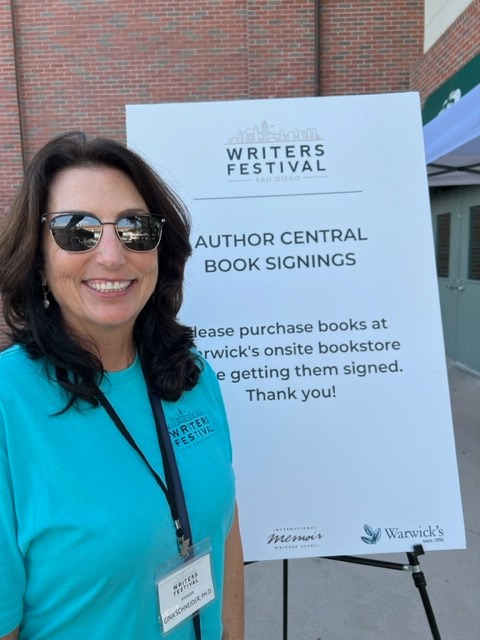
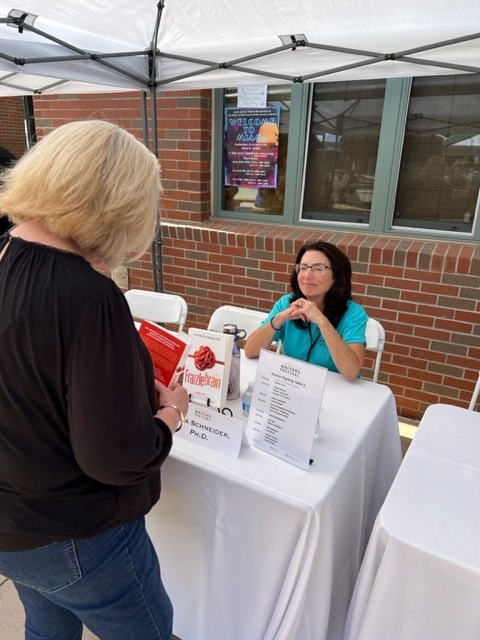
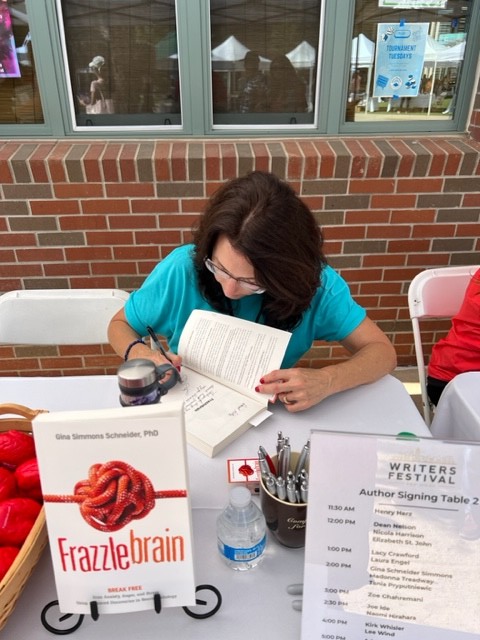
Gina, love having you share your insights with us. Before we ask you more questions, maybe you can take a moment to introduce yourself to our readers who might have missed our earlier conversations?
After volunteering for a suicide crisis hotline, I changed my career goal from entertainer to psychotherapist. I worked with incarcerated youth and high-conflict families and provided anger, stress, and conflict management training for many organizations. I am a licensed psychotherapist, executive coach, and corporate trainer. I serve as co-director of Schneider Counseling and Corporate Solutions. I’m very excited about my book, Frazzlebrain: Break Free from Anxiety, Anger, and Stress Using Advanced Discoveries in Neuropsychology (Central Recovery Press, April 2022). Frazzlebrain provides a soothing experience for readers interested in improving their coping skills for the hard things in life. I am a coping skills expert with over 25 years of experience helping people regulate difficult emotions and conflicts. I am certified in Neuroscience for Clinicians through PESI and Critical Incident Stress Debriefing through National Trauma Services. I have been quoted in the New York Times, Los Angeles Times, and the San Diego Union-Tribune. Laurence Knight interviewed me for the BBC World Service program “How to Be Angry.”
I blog for Psychology Today and write the award-winning Manage Anger Daily blog. I have blogged for Forbes and Women in Crime Ink which the Wall Street Journal named a “blog worth reading.” I provide training for Fortune 500 companies and other organizations. Contact me for speaking engagements or additional information at Frazzlebrain.com.
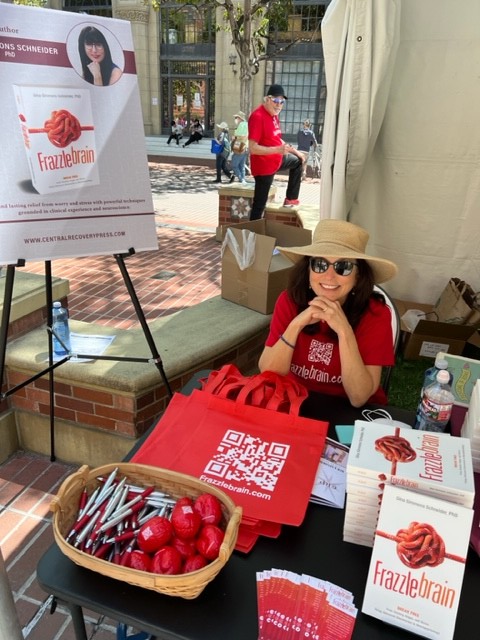
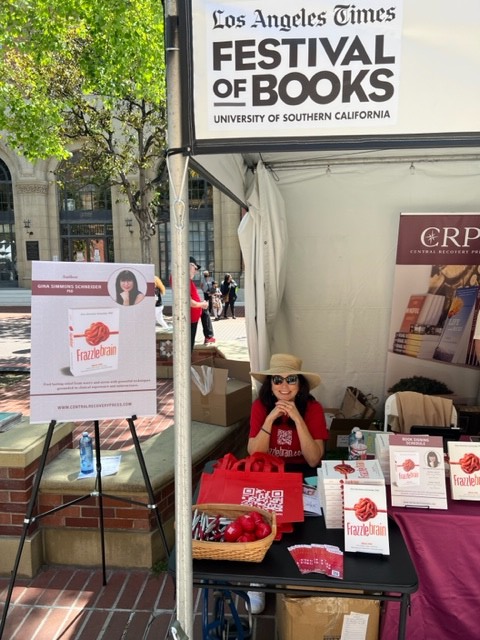
Other than training/knowledge, what do you think is most helpful for succeeding in your field?
After decades of helping people struggling with extreme life events, rape, suicide, homicide, violence, death of children, etc., I felt exhausted. My children were grown, and I mourned the empty nest rhythms of a house full of people I loved. My usual head-clearing strategies between therapy sessions didn’t refresh me. I decided to volunteer for a study researching the cultivation of compassion. I attended an eight-week compassion cultivation course and completed questionnaires on my stress levels and how I was coping with life. At the end of the training, I noticed that my appreciation of small things, like the beauty of nature, had returned to me. I felt happier and lighter. I learned transcendental meditation as a teenager. I think that ability to calm oneself is necessary for therapists. We need to be calm inside, so our clients can borrow from our strength. After years of providing that kind of strength, I felt exhausted. Learning self-compassion meditation helped me restore myself and feel inspired and renewed.
If you could go back in time, do you think you would have chosen a different profession or specialty?
I’ve enjoyed every part of my professional development, from suicide hotline volunteer to doing anger management training for the FBI. All of it fascinated me. Rather than going back and changing my profession, I’d love to study neuroscience in a lab. I joke with my family and friends that I would love to keep going to school, learning everything I can about humans and the human brain. I find it endlessly fascinating.
Contact Info:
- Website: www.frazzlebrain.com
- Instagram: https://www.instagram.com/ginasimmonsdoc/
- Facebook: https://www.facebook.com/DrGinaSimmonsSchneider/
- Linkedin: https://www.linkedin.com/in/ginasimmonsphd/
- Twitter: https://twitter.com/DrGinaSimmons
Image Credits
Emily Rathburn Anthony Gibson


